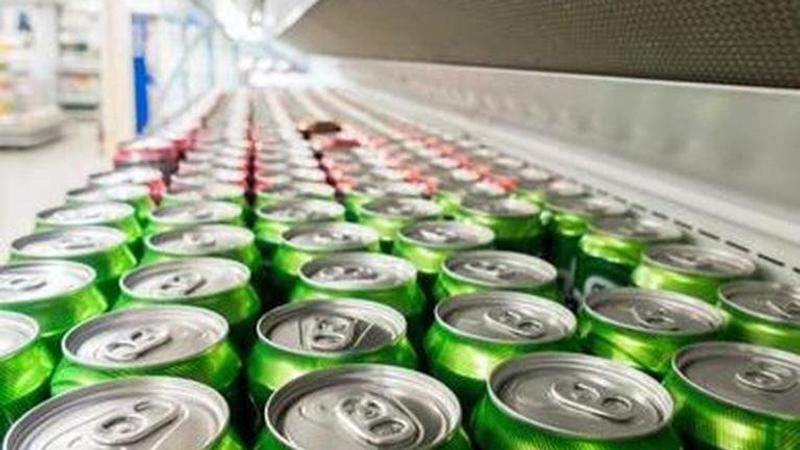Published 10:08 IST, July 14th 2023
WHO deems Aspartame a possible carcinogen; Here's list of foods that have this chemical
The World Health Organisation (WHO) has classified the non-sugar sweetener Aspartame as a potential carcinogen. Here's the list of foods that have Aspartame.

The World Health Organisation (WHO) has classified the non-sugar sweetener Aspartame as a potential carcinogen. The organisation has recommended a daily intake of Aspartame up to 40 milligrams per kilogram of a person's body weight, deeming it safe within this limit.
The assessment of Aspartame was conducted by the International Agency for Research on Cancer (IARC) and the Joint Expert Committee on Food Additives (JECFA), which includes experts from the WHO and the Food and Agriculture Organisation (FAO).
The IARC categorised Aspartame as possibly carcinogenic to humans (Group 2B), citing "limited evidence" for carcinogenicity in humans, particularly in relation to hepatocellular carcinoma, a type of liver cancer. The JECFA reaffirmed the acceptable daily intake of 40 mg/kg body weight for aspartame.
Dr Mary Schubauer-Berigan, from the IARC Monographs Programme, emphasised the need for further research to better understand the potential carcinogenic hazards of Aspartame, considering the limited evidence of carcinogenicity in both humans and animals, as well as limited mechanistic evidence.
The WHO press release highlighted that there is limited evidence for cancer in experimental animals and insufficient data on the mechanisms by which Aspartame may cause cancer.
What is Aspartame?
Aspartame is an artificial, low-calorie sweetener used as a sugar substitute in a wide range of food and beverage products. It is known for its intense sweetness, approximately 200 times sweeter than table sugar (sucrose). Aspartame is widely used as a sugar replacement due to its sweet taste, low-calorie content, and ability to maintain the taste of food and drinks.
Chemically, aspartame is a dipeptide composed of two amino acids: L-aspartic acid and L-phenylalanine, joined together by a methyl ester bond. The chemical formula of aspartame is C14H18N2O5. It was first synthesised in the 1960s and gained approval for use as a food additive in the United States in the 1980s.
Aspartame has been extensively studied for its safety and potential health effects, and it has been approved for use by regulatory authorities in many countries, including the United States, Europe, India and Canada.
List of foods that have Aspartame
According to the WHO statement, aspartame is an artificial (chemical) sweetener used in various food and beverage products.
Soft drinks: Aspartame is commonly used as a sweetener in various diet and sugar-free drinks. Brands such as Diet Coke, diet sodas (including cola and non-cola varieties), Sprite Zero, Fanta Zero, and Diet Mountain Dew often contain aspartame to provide sweetness without the added calories of sugar.
Dairy products: Certain dairy products that are marketed as low-fat or fat-free may use aspartame as a sweetener. Examples include fat-free yoghurts and low-fat flavoured milk. It's worth noting that other artificial sweeteners may also be used in conjunction with aspartame in these products.
Desserts: Aspartame can be found in a range of desserts and sweet treats that are specifically formulated to be low in sugar or sugar-free. Ice cream, puddings, and gelatin-based desserts may be sweetened with aspartame. Cereals, including some sugar-free or low-sugar options, may also contain aspartame. Additionally, sugar-free jams and sugar-free desserts like cakes or cookies might use aspartame as a sweetener. Diabetic frozen desserts, intended for individuals with diabetes who need to manage their sugar intake, may also use aspartame.
Table-top sweeteners: Many brands of table-top sweeteners, also known as sugar substitutes or artificial sweeteners, contain aspartame. These sweeteners are typically in the form of small packets or granules used to replace sugar in beverages such as coffee or tea. They can also be used in cooking and baking as an alternative to sugar.
Chewing gums: Sugar-free chewing gums and breath mints often utilise aspartame as a sugar substitute. These products are intended to provide a sweet taste and freshen breath without the added sugars found in regular chewing gum.
Earlier while speaking with Republic, Manoj Kumar, Senior Director, Cardiology Department, Max Hospital, had said, “Aspartame is present in 6,000 products that we use commonly, toothpaste, cough syrup, chew gum to soft drinks, etc. When one takes it, it goes to the stomach and gets metabolised. It then forms two are formed products - methanol, and formaldehyde. Methanol is toxic for the liver and formaldehyde is carcinogenic.”
(With inputs from ANI)
Updated 10:08 IST, July 14th 2023



